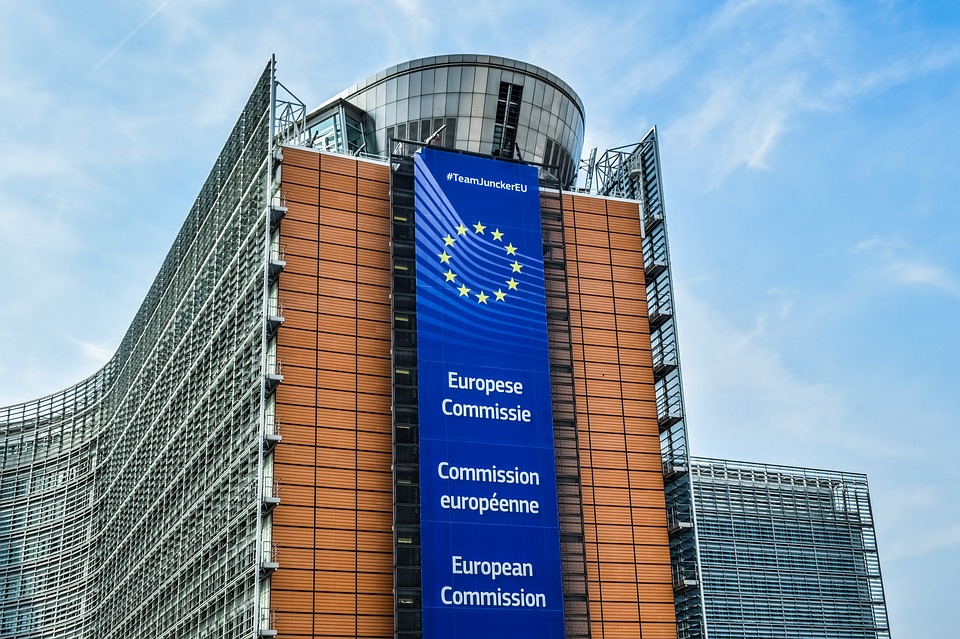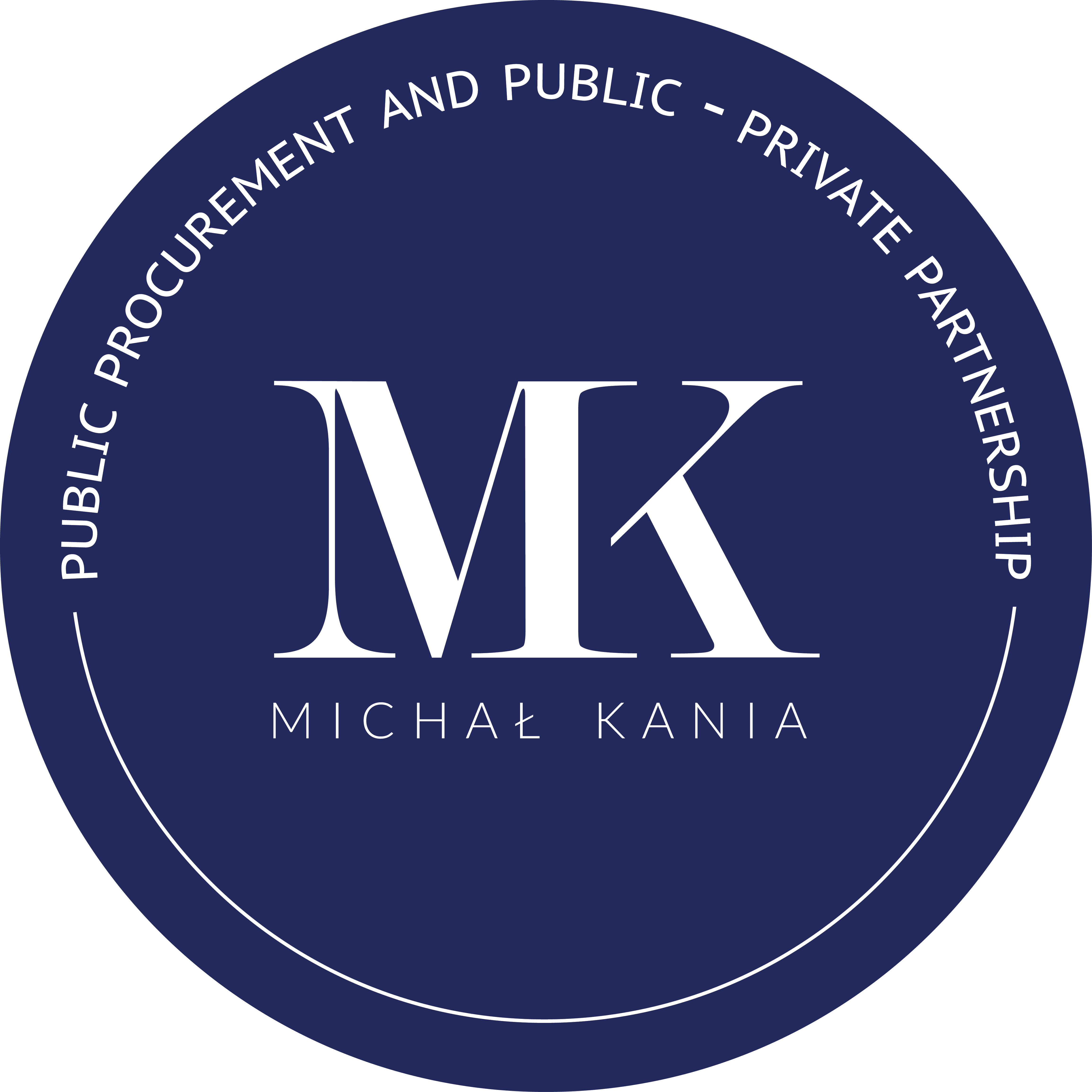European Competency Framework for Public Procurement Professionals

The European Commission has released ProcurCompEU. A new tool to support the professionalisation of public procurement. ProcurCompEU shall help contracting authorities and individuals in EU countries assess their competences and knowledge of public procurement, identify skills gaps, and design targeted learning and development tools.
ProcurCompEU is a tool designed by the Commission to support the professionalisation of public procurement. It recognizes and supports public procurement as a strategic function that delivers public investment for sustainable growth. ProcurCompEU defines 30 key competences in a ‘competency matrix’ to provide a common reference for public procurement professionals in the EU and beyond. ProcurCompEU also contains a self-assessment tool and a generic training curriculum. ProcurCompEU enables procurement professionals to play a pivotal role in facing current and future challenges in delivering high value investment and services for the citizens. It helps individual public procurement professionals to valorise their competences, facilitates training and professional development. It helps organisations to build the teams of professionals they need to reach their strategic investment goals and to encourage careers in procurement. It also helps training providers to build the appropriate training programmes.
Polish public procurement during and after the Covid-19 pandemic

The Covid-19 pandemic caused by the SARS-CoV-2 coronavirus has rapidly and unexpectedly changed the way in which the world functions in practically every possible area. Its impact is noticeable in global, national and local economic relations, including the public procurement sector. The impact of the pandemic on the Polish public procurement market can be observed at least on several levels.
First of all, the situation has directly affected the legal regulations on public procurement. Already in the initial regulation concerning threats resulting from the impending pandemic, the Polish legislator referred to the issue of public procurement. This regulation, commonly referred to as the "Coronavirus Special Act", was included in The Act on Special Arrangements for Preventing, Counteracting and Combating COVID-19, Other Infectious Diseases and the Crisis Situations they Cause of 2 March 2020. Subsequent regulations concerning public procurement appeared in successive versions of what are known as "Anti-Crisis Shields". These included: the Act Amending the Act on Special Arrangements for Preventing, Counteracting and Combating COVID-19, Other Infectious Diseases and the Crisis Situations they Cause and Certain Other Acts of 31 March 2020 (the “Anti-Crisis Shield 1.0”), the Act on Special Support Instruments in Connection with the Spread of the SARS-CoV-2 Virus of 16 April 2020 ("Anti-Crisis Shield 2.0”), the Act Amending Certain Acts in the Field of Protective Measures in Connection with the Spread of SARS-CoV-2 Virus of 14 May 2020 ("Anti-Crisis Shield 3.0”) and the Act on Subsidies to Interest on Bank Loans Granted to Provide Financial Liquidity to Businesses Affected by Covid-19 of 19 June 2020 ("Anti-Crisis Shield 4.0”). The Polish Public Procurement Office, in subsequent communications and information, actively referred to issues related to the impact of the pandemic that were subject to the legislative initiatives described above.
Secondly, the Covid-19 pandemic has had an impact on international trade, including those aspects related to public procurement. This primarily concerns problems related to maintaining the proper functioning of international supply chains, as well as guaranteeing cross-border supplies of medical equipment of appropriate quality and suitability to combat the pandemic. The issue of the numerous abuses and illegal activities by manufacturers of this equipment and their sales intermediaries was particularly worrying. A communication from the Commission Guidance from the European Commission of 1 April on using the public procurement framework in emergency situations related to the COVID-19 crisis was a noteworthy action at an EU level. Quite importantly, the position presented in the Communication was contrary to the solution provided for in Article 6 paragraph 1 of the Coronavirus Special Act, based on a comprehensive exclusion of the regulation contained in the Public Procurement Law regarding supply and service contracts, and on the basis of Article 46c of the Act on Preventing and Combating Infections and Infectious Diseases in Humans of 5 December 2008, also contracts for construction works related to the Covid-19 epidemic.
Thirdly, the situation related to the pandemic should naturally provoke a discussion on the desired shape of public procurement in the future, namely in the “post-Covid era”. The reflection should cover the existing regulatory loopholes, as well as using the full range of legal structures available de lege lata and those provided for in the new Polish Public Procurement Law of 11 September 2019, which is to enter into force on 1 January 2021.
The World Bank's Fifth International Debarment Colloquium

Please join the Fifth International Debarment Colloquium - Roundtable 3. We will be discussing the "Other" Grounds: Performance- and Capacity-Based Debarments. This event will be organized by World Bank and will take place on October, 6 from 10 AM – 11:15 AM.
More information and registration at: Registration Roundtable 3
Prof. Christopher Yukins' and Prof. Michał Kania article concerning suspension and debarment in the U.S. and comparative lessons for the EU’s next steps in procurement can be found here
Webinar – Current Challenges and Opportunities for Green Public Procurement – September 30

Join a free webinar with European and U.S. experts to discuss international developments in “green procurement”
Wednesday, 30 September 2020 — 9 am ET/15:00 CET
Global challenges related to the climate changes as described in the Paris Agreement influence various aspects of public policies across the world. This leads us to observe in the U.S. presidential candidate Joe Biden’ s New Green Deal and in Europe, where for example the New Industrial Strategy for Europe calls for the support and implementation of the green aspects in public procurement. Also, the New European Green Deal and the Just Transition Fund should have a significant impact on the public procurement market and regulations.
Although Green Public Procurement (GPP) is still a non-mandatory legal instrument, the European Commission has opted for this solution as an effective measure in the EU's efforts to become a more resource-efficient economy. GPP can help stimulate a critical mass of demand for more sustainable goods and services which otherwise would be difficult to get onto the market. The new European initiatives are important not only for European public authorities and contractors but also for U.S. enterprises interested in Transatlantic cooperation.
The Institute of Law at the University of Silesia, Association ''Pro Silesia’’ with the support of the George Washington University’s Government Procurement Program invites you for a 90-minute, free webinar concerning current challenges and opportunities for green public policies and their influence on public procurement markets in the USA and the European Union, with discussions with leading specialists from both sides of the Atlantic.
Registration at: GPP Webinar Registration
Agenda and Speakers:
- Prof. Jerzy Buzek, Member of the European Parliament, President of the European Parliament in the years 2009–2012, Prime Minister of the Republic of Poland in the years 1997–2001: New Green Deal and Just Transition Fund
- Prof. Alexandra Harrington, University of Albany School of Law, Assistant Director of the Global Institute for Health and Human Rights (USA), Adv. Magdalena Stryja, University of Silesia in Katowice, Just Transition Research Group (Poland): Intersections between Global Governance Regimes and Climate Change Law
- Prof. Christopher Yukins, George Washington University, Washington D.C. (USA): The U.S. experiences with the support of environmental aspects in government contracting
- Dr Wojciech Hartung, DZP, Public Procurement Law Association (Poland): European Green Deal and Just Transition Fund reflections on the European Public Procurement legal regime
- Adv. Katarzyna Kuzma, DZP, Public Procurement Law Association (Poland): The support of the green effects in the new Polish Public Procurement Act
- Question and Answer Session Moderator: Prof. Michał Kania, University of Silesia in Katowice (Poland)
Speakers:
Prof. Jerzy Buzek - Member of the European Parliament continuously since 2004, and in the years 2009-2012 - its president. In the European Parliament prof. Buzek is a member of the Committee on Industry, Research and Energy. In 2016, Euractiv recognized him as one of the three most influential people of European energy policy. The winner of the rankings of the Rzeczpospolita daily for the best Polish MEP in 2008 and 2018. In the years 1997-2001 the Prime Minister of the Republic of Poland; his government carried out reforms of administration, education, health, pensions and mining. Professor Buzek also introduced Poland to NATO and started negotiations on its membership in the European Union. Knight of the Order of the White Eagle.
Prof. Alexandra Harrington – author of the book International Organizations and the Law and the forthcoming International Law and Global Governance: Treaty Regimes and Sustainable Development Goals Interpretation. Alexandra is the Director of Studies for the International Law Association Colombian branch, a member of the International Law Association Committee on the Role of International Law in Sustainable Natural Resource Management for Development, and an adjunct professor at Albany Law School. She also provides guest lectures globally on topics related to international law, environmental law, global governance and sustainable development.
Prof. Harrington has served as a consultant for entities such as the Commission for Environmental Cooperation of the North American Agreement on Environmental Cooperation and UN Environment. Prof. Harrington’s publications address a variety of fields relating to international law, including environmental law, legal issues relating to climate change, natural resources regulation, international organizations, international human rights law, international child’s rights, international trade law, corporate social responsibility, and criminal law. Prof. Harrington routinely presents her works at domestic and international conferences.
Adv. Magdalena Stryja performs the function of the Chair of the Science and Development Committee with the District Bar Association in Katowice. She is Poland’s first member of the international organization: Centre for International Sustainable and Development Law. Magdalena is a member of the interdisciplinary Polish Research Group Just Transition, which aims at developing and implementing the concept of fair transformation with a view to transforming the economy, lifestyle, culture and social values in Silesia in the face of climate change. She is a member of the University of Silesia-based Bioethics Research Group dealing with legal and bioethical aspects of medicine and animal protection as well as environmental and climate protection.
She is also a member of The Labour Law and Social Policy Research Group at the Institute of Legal Sciences at the University of Silesia. Magdalena delivers lectures on labour law and social policy. Her research interests also encompass legal aspects of climate change, including the social aspects of retraining employees.
Prof. Christopher Yukins - serves as co-director of the government procurement law program at George Washington University Law School, and has taught there on contract formations and performance issues in public procurement, bid protests and claims litigation, state and local procurement, Anti-corruption issues, foreign contracting, procurement reform, and comparative and international law. He has testified on issues of procurement reform and trade before committees of the U.S. Congress and the European Parliament. He is a visiting professor at the Université Paris Nanterre, where he lectures annually, and has taught a week-long course on procurement issues and corruption at the International Anti-Corruption Academy (Austria).
Prof. Yukins has spoken as a guest lecturer at institutions around the world, and he was a contributing editor to the UN Office on Drugs and Crime manual, Guidebook on Anti-Corruption in Public Procurement. He is an active member of the Public Contract Law Section of the American Bar Association, and is a member of the Procurement Roundtable, an organization of senior members of the U.S. procurement community. He is a faculty advisor to the Public Contract Law Journal, is a member of the editorial board of the European Procurement & Public-Private Partnership Law Review and is on the advisory board of The Government Contractor. He has worked on a wide array of international projects on capacity-building in procurement, and he was an advisor to the U.S. delegation to the working group on reform of the United Nations Commission on International Trade Law (UNCITRAL) Model Procurement Law. Together with his colleagues, he runs a colloquium series on procurement reform at The George Washington University Law School.
In private practice, Professor Yukins has been an associate, partner and counsel at leading law firms; he is currently counsel to the firm of Arnold & Porter.
Dr Wojciech Hartung - counsel at the Polish law firm Domański Zakrzewski Palinka, advises on infrastructure projects carried out under the Public Procurement Law or using partnership structures, i.e. PPP, concessions and other forms of co-operation between public and private partners, specialises in public-public cooperation (in-house procurement) issues. They have been addressed in his PhD dissertation on the "Independence of a basic local government unit upon the organisation and provision of municipal services in light of European law and Polish legal order’’. Wojciech is a Member of a working group set up by the Ministry of Development to review the law on public-private partnerships and to draw up a government policy in this respect. Until March 2009 dr Hartung acted as the Director of the European Union and International Co-operation Department at the Public Procurement Office. Wojciech was also Polish representative on the European Council’s Working Group on Public Procurement and on the Advisory Committee for Public Works Contracts set up by the European Commission.
Wojciech is a member of Public Procurement Law Association.
Adv. Katarzyna Kuzma - partner at the Polish law firm Domański Zakrzewski Palinka and heads the team providing services relating to Polish and European public procurement law. She has extensive experience in advising both public and private entities operating in various sectors (including construction and engineering services, environmental protection, pharmaceutical and energy) on projects carried out in the traditional form (public procurement) and those based on partnership structures in the broad meaning of the term (PPP, concessions). The advice Katarzyna renders covers all stages of procedures (including representation before the National Appeal Chamber and common courts) and performance of public contracts, including inspections and financial adjustment procedures.
She actively promotes implementation of compliance systems in the area of public procurement, with special focus on bid rigging. Katarzyna is also the Vice-President of the Public Procurement Law Association.
Prof. Michał Kania - professor at the Silesian University in Katowice, legal adviser with 15 years of experience, member of the Just Transition Research Group. Michał is also an active member of the Public Procurement Association and legal consultant with the specialization in Public-Private Partnership and public procurement law, Visiting Fulbright Scholar at the George Washington University (2018-2019), Fellowship of German Academic Exchange Service at the Ludwig Maximilian University in Munich (2017), speaker at the Polish and international conferences, initiator and lecturer at the Postgraduate Studies in Public-Private Partnership and Public Procurement at the Silesian University in Katowice, independent adviser for the Polish Ministry of Development for the concept of the new Polish Public Procurement Act, adopted on 11 September 2019, plenipotentiary of the President of the University of Silesia for PPP projects.
George Washington University Law School Webinar – A Tumultuous Year for Trade

Please join a free webinar on emerging barriers in procurement due to cybersecurity, the “Section 889” Huawei ban, Trump and Biden on “Buy American,” and growing European protectionism with Professor Christopher Yukins (GW Law School) and Professor Laurence Folliot Lalliot (Université Paris Nanterre) as moderators.
More info at www.publicprocurementinternational.com
Public Procurement and Public Private-Partnership

Public Procurement and Public Private-Partnership (PPP) are methods, which can support public sector in achieving common golas, such as: sustainability and innovation of public infrastructure. Public procurement and PPP shall respond to the current global challenges such as combat of pandemia, implementation of 4th Industrial Revolution benefits, 5G, building Smart Cities, responding to geostrategic challenges and improving of eco-innovation. The role of academics, both private and public sector is to support the public procurement and PPP in common public mission.

Michał Kania, professor at the University of Silesia in Poland, Senior Researcher at the Centre for Private Governance (University of Copenhagen), legal adviser with 16 years of practical experience in PPP, public procurement and concession contracts, member of the Just Transition Research Group at the University of Silesia. Active member of the Public Procurement Association in Poland, Visiting Fulbright Scholar at the George Washington University (2018-2019), Fellowship of German Academic Exchange Service at the Ludwig Maximilian University in Munich (2017), author of more than 100 publications regarding PPP, public procurement law, administration law and administration procedure, speaker at the Polish and international conferences, initiator and lecturer at the Postgraduate Studies in Public-Private Partnership and Public Procurement at the University of Silesia, founder and the first president of the PPP Academic Support Foundation, founder of the program ‘’PPP- Good Choice’’ (active in years 2009 – 2014), former president of the PPP Commission by the Conference of Rectors of Academic Schools in Poland, independent adviser for the Polish Ministry of Development for the concept of the new Polish Public Procurement Act, adopted on 11 September 2019, plenipotentiary of the President of the University of Silesia for PPP projects, MBA, with the final thesis: ,,Economic and financial analyses in public – private partnership projects’’.